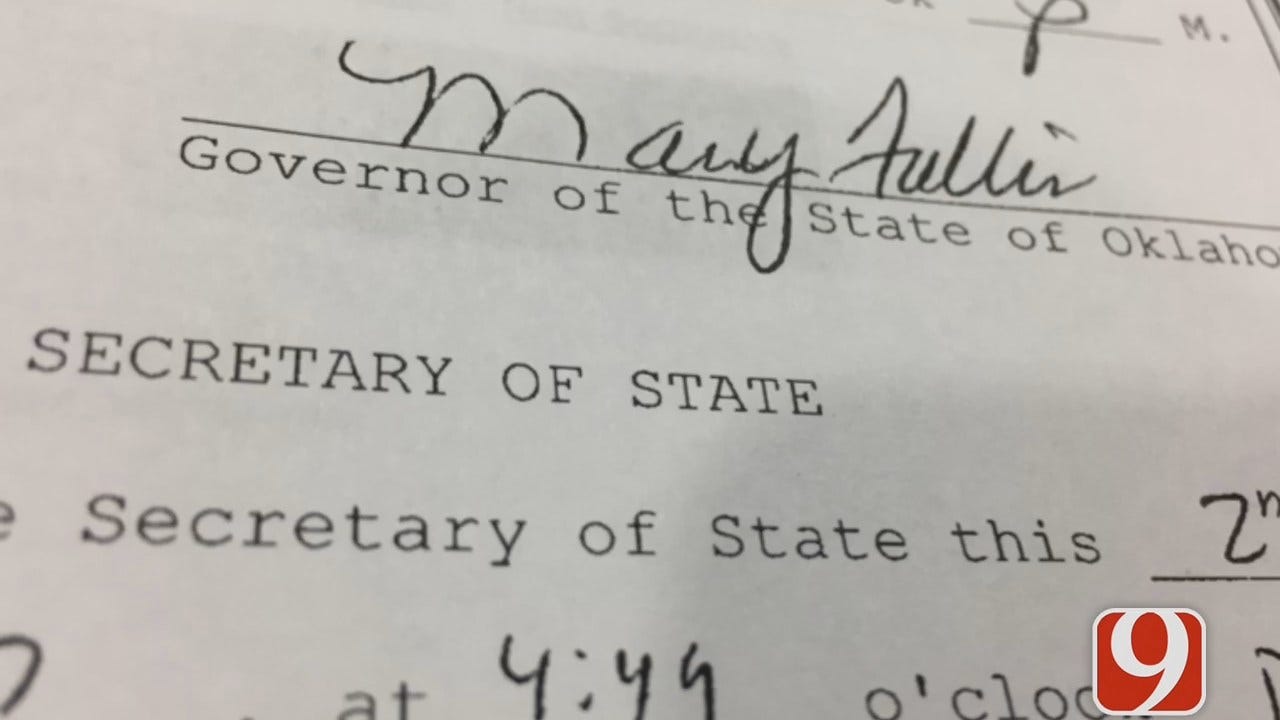DA Shares Prosecution Concerns About Oklahoma's New Blue Lives Matter Law
<p>The Blue Lives Matter bill signed by Gov. Mary Fallin last week, mandates that anyone convicted of killing a law enforcement officer be sentenced to life in prison, or receive the death penalty.</p>Monday, May 8th 2017, 4:37 pm
From an outside standpoint, the Blue Lives Matter in Oklahoma Act of 2017 may seem straightforward, but an Oklahoma district attorney is concerned the law will cause problems in the courthouse.
Laura Thomas is the district attorney for both Payne and Logan counties. She is currently working on the case involving the murder of Deputy David Wade in Logan County. Thomas has already filed a Bill of Particulars seeking the death penalty for the suspect under current law. Because the crime happened in April, the new law does not apply to that case. In a way, Thomas said she is glad it doesn’t.
“This law doesn’t help me in what I need to do. I think I already have adequate law to get to where we’re going,” said Thomas.
In Oklahoma, Thomas said protecting the lives of officers is a priority. In order to seek the death penalty in a case, at least one of eight aggravating factors needs to be met. One of those factors specifically addresses the murder of a law enforcement officer.
According to the Oklahoma Court of Criminal Appeals, the 7th aggravator in death penalty proceedings is “The victim of the murder was a peace officer or guard of an institution under the control of the Department of Corrections, and such person was killed in the performance of official duty.”
If convicted, the suspect can face life in prison, life without parole, or the death penalty based on what the jury decides. However, after November, that will change.
The new bill signed by Gov. Mary Fallin amends an existing law. It adds, “A person who is convicted of or pleads guilty […] shall be punished by death or life without parole and absent an overwhelming amount of mitigating evidence shall not be entitled to or afforded the benefit of receiving imprisonment for life or deferment of the sentence.”
Thomas is worried that the language “overwhelming amount of mitigating evidence” is not specific and will leaves too many open-ended questions for future cases. It also may create a burden of proof for the defense, according to Thomas.
“I’m sure their intentions were good. I’m just saying this is already going to create multiple appealable issues,” said Thomas. She said there will be constitutional challenges, making for an even longer appeal process down the line.
More Like This
November 13th, 2024
October 28th, 2024
October 17th, 2024
Top Headlines
December 21st, 2024
December 21st, 2024
December 21st, 2024












